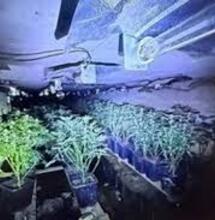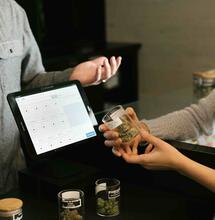Betrayed by your smartphone

Every week I browse through the recent judgements on the website Rechtspraak.nl. I read a judgement about someone who was accused of being involved with a cannabis cultivation site. The cultivation site was found in a warehouse next to his house. The mentioned person denied every involvement. He didn’t know anything about it. The Judge didn’t find his statement credible. This with good reason. In his smartphone a photo was found, that had been taken earlier that day at the cultivation site. The IPhone doesn’t only register the date it also registers where the photo was taken.
In the Courtroom digital evidence is used more often. Google and smartphones are often used by the police and supply very useful information. If you are arrested by the police and you have a phone on you, there is a big chance that the phone will be confiscated. The phone will be searched for what we call “truth finding”. The police will ask for your permission for such an investigation. I can’t guarantee that before asking that question they don’t try to check if you have the standard code to unlock your phone. If you voluntarily give them the code to unlock your phone, this will be seen as giving them your consent. With that you give the police all the leeway they need. A peak at your Whats-app chats, text messages and photos can provide incriminating evidence. The smartphone is often used as a digital diary. Nowadays what don’t we use our phone for?
Without knowing you do more with your phone than anticipated. If your smartphone has the Wi-Fi turned on, it will continue to look for Wi-Fi-signals to see if a known network is nearby, to which it can automatically connect. Routers detect these signals and sometimes they store this information. Every smartphone has a unique address. Even the Bluetooth function leaves a digital trace. Your smartphone is also convenient as a navigation system. Are you looking for a certain address, then your smart phone will provide you with the information. Navigation apps function just fine, but the place of origin and your place of destination are saved in the phones memory. Do you use Google to search for example retailers that sell Opticlimate? Then this search request is stored in the browser history on your phone. Can the police retrieve this information? Yes they can. The suspect in the murder case of Koen Everink used Google to search for phrases such as “knife stab in throat” and “deathly knife stab”. The judge used these search terms as evidence.
If you are a crime suspect, the police must have your consent before researching your smartphone thoroughly. You are not obliged to give the police your consent. Without your help the police must ask the Magistrate for permission. By looking at all the contacts, the caller history, text messages and photo’s in someone’s phone, according to the Supreme Court an image is formed by certain aspects of a person’s personal life. Think twice about giving the police your consent when asked for it.
Translated by Joanna McKernan. Joanna works as a Lawyer for the law firm Beckers & Bergmans in Sittard. She is a native English speaker. Joanna has a lot of experience in cannabis related civil cases.
 André Beckers (Lawyer)
andre@beckersbergmans.nl
available on phone: 003165317489
André Beckers (Lawyer)
andre@beckersbergmans.nl
available on phone: 003165317489
 Joanna McKernan (Lawyer)
joanna@beckersbergmans.nl
available on phone: 0031467600030
Joanna McKernan (Lawyer)
joanna@beckersbergmans.nl
available on phone: 0031467600030
 André Beckers (Lawyer)
andre@beckersbergmans.nl
available on phone: 003165317489
André Beckers (Lawyer)
andre@beckersbergmans.nl
available on phone: 003165317489
 Joanna McKernan (Lawyer)
joanna@beckersbergmans.nl
available on phone: 0031467600030
Joanna McKernan (Lawyer)
joanna@beckersbergmans.nl
available on phone: 0031467600030
S
Soft Secrets



